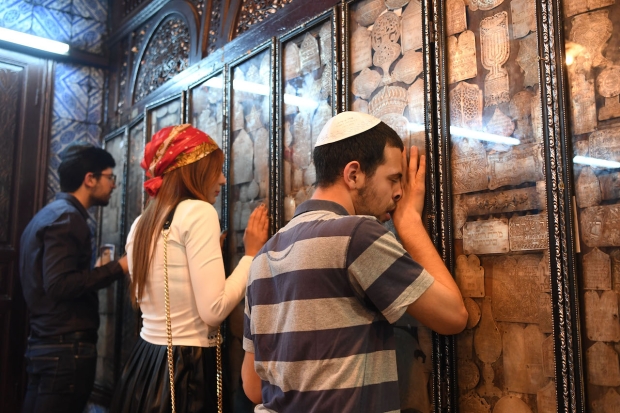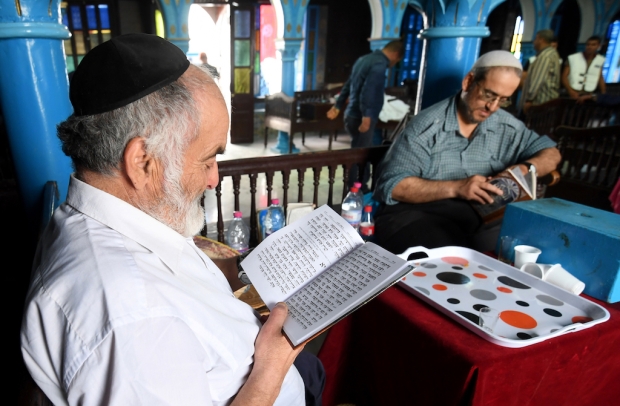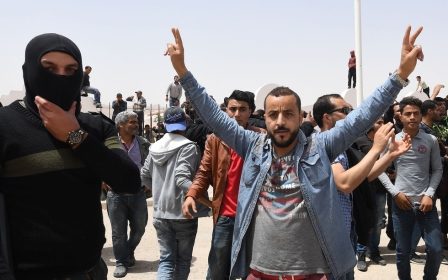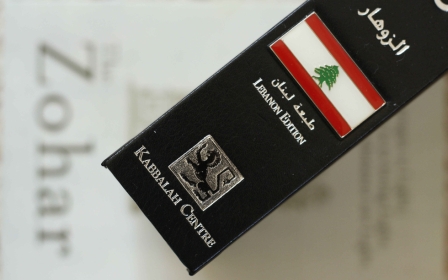Festive mood and tight security for Tunisia Jewish festival
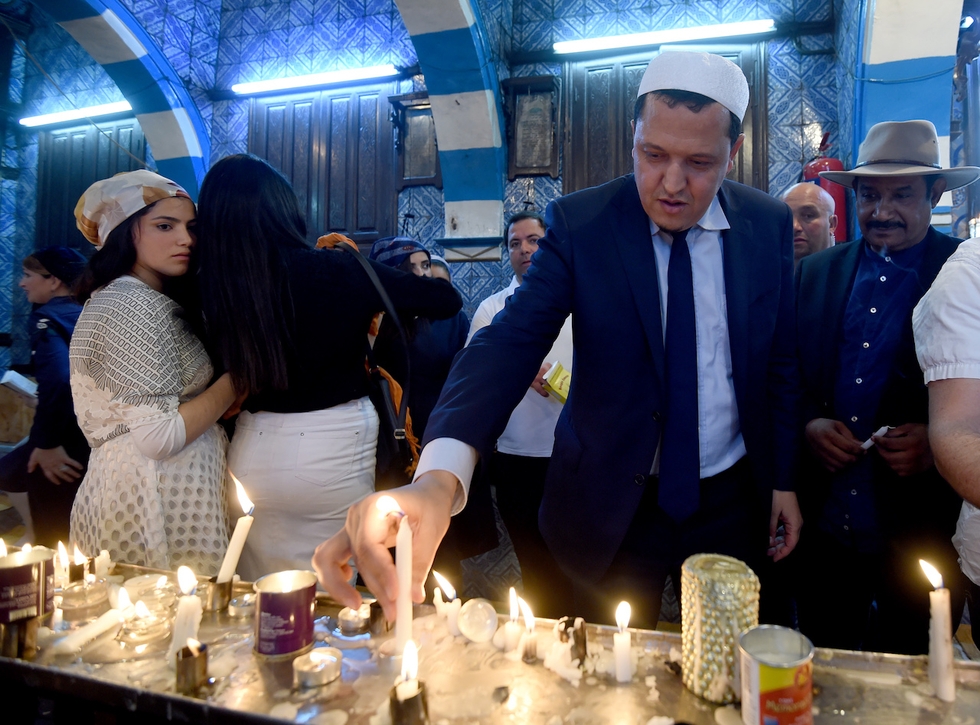
An annual Jewish pilgrimage to Africa's oldest synagogue on Tunisia's Djerba island began on Friday under tight security but in a festive mood.
An AFP journalist saw dozens of pilgrims from the North African country and from France heading to the revered Ghriba synagogue to pray, light candles and write wishes on eggs.
Some celebrated the centuries-old Lag BaOmer festival by sipping glasses of boukha, a liqueur made from figs.
"My parents brought me to Djerba when I was a little boy and each year since I have returned," said Sylvain, who travelled from Paris.
"This year I came with my oldest brother and some friends. We are happy to be here," said the 55-year-old interior decorator.
Organisers expect the two-day festival to attract up to 3,000 visitors, 1,000 more than last year when Tunisia was still reeling after a series of militant attacks.
They said pilgrims were expected from Belgium, Spain, the United States and even Israel, despite the government there warning its citizens for the third consecutive year against taking part.
"Each year they say the same thing, but personally I feel at home here, the welcome is excellent and the people are warm," said Aziz Baroum, 55, who travelled from the southern Israeli city of Ashkelon.
Baroum, whose parents were born in Tunisia, said he took part in last year's festival and noted there were more pilgrims this time.
The festival passed off without incident last year and in 2015.
Since its 2011 revolution, Tunisia has experienced an increase in militant attacks that have cost the lives of dozens of members of the security forces and 59 foreign tourists.
The country has also been under a state of emergency since November 2015, when a suicide bombing claimed by the Islamic State group killed 12 presidential guards.
"We trust the Tunisian authorities to guarantee security," the head of the synagogue, Perez Trabelsi, told AFP. "I am optimistic."
"Things are going very well," added his son and co-organiser Rene Trabelsi. "We're making progress."
A helicopter overflew the area and checkpoints were set up around the synagogue which was heavily guarded by police, soldiers and members of the anti-terror brigades.
Despite the heavy security, several hundred pilgrims took part in afternoon rituals, some ululating while others sang religious songs.
The number of pilgrims visiting the synagogue has fallen sharply since a suicide bombing claimed by al-Qaeda struck Ghriba just before the 2002 pilgrimage, killing 21 people.
Before then the event attracted as many as 8,000 people a year.
Believed to have been founded in 586 BC by Jews fleeing the destruction of the Temple of Solomon in Jerusalem, the Ghriba synagogue has long been a destination for pilgrims, especially for Jews of Tunisian descent.
Some 1,500 Jews live in Tunisia, down sharply from an estimated 100,000 before the country won independence from France in 1956.
New MEE newsletter: Jerusalem Dispatch
Sign up to get the latest insights and analysis on Israel-Palestine, alongside Turkey Unpacked and other MEE newsletters
Middle East Eye delivers independent and unrivalled coverage and analysis of the Middle East, North Africa and beyond. To learn more about republishing this content and the associated fees, please fill out this form. More about MEE can be found here.


